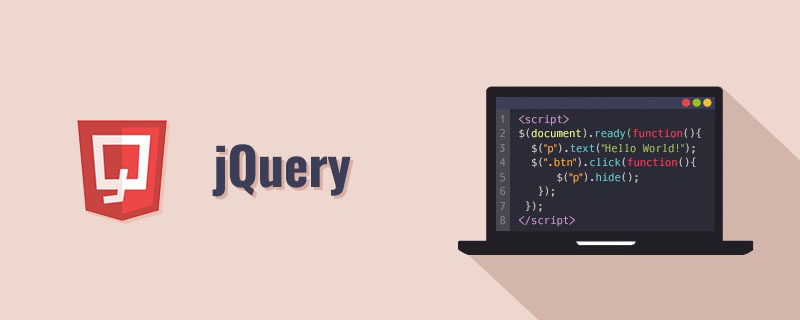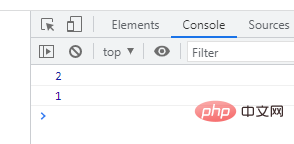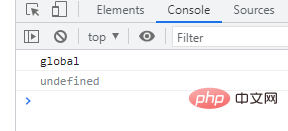Home >Web Front-end >Front-end Q&A >What is the meaning of keyword let in jquery
What is the meaning of keyword let in jquery
- 青灯夜游Original
- 2022-07-28 16:18:022821browse
In jquery, let is a keyword for declaring variables. The let keyword allows you to declare a variable, statement or expression whose scope is limited to the block scope. Variables declared by let will not be promoted in the scope, it is initialized at compile time; let will not create properties of the window object when declared globally (in the top-level scope).

The operating environment of this tutorial: windows7 system, jquery3.6.0 version, Dell G3 computer.
In jquery, let is a keyword that declares variables.
The let keyword declares a block-scoped local variable and can be initialized to a value (optional). Syntax:
let name1 [= value1] [, name2 [= value2]] [, ..., nameN [= valueN];
Parameters
nameN: The name of one or more variables to be declared, must be a legal identifier.
valueN: Optional, specifies the initial value of the variable, which can be any legal expression.
Example:
let x = 1;
if (x === 1) {
let x = 2;
console.log(x);
// expected output: 2
}
console.log(x);
// expected output: 1
Description:
let allows you to declare that a scope is restricted A variable, statement, or expression in block scope. Different from the var keyword, the variable scope declared by var is global or the entire function block. Another important difference between var and let is that the variable declared by let will not be promoted in the scope, it is initialized at compile time (see the temporary dead zone below).
Just like const, let will not create properties of the window object when declared globally (in the top-level scope).
You can learn why we use let from here.
You can avoid many problems by declaring let variables at the top of the scope where they are used, but doing so may affect readability.
Different from var, let is just the beginning of a statement, not a complete expression. This means that you cannot have a separate let declaration as the body of a block of code (which makes sense, since declared variables cannot be accessed).
if (true) let a = 1; // SyntaxError: Lexical declaration cannot appear in a single-statement context
Scope rules
The variable scope declared by let is only within the block or sub-block in which it is declared. This is similar to var. The main difference between the two is that the scope of the variable declared with var is the entire enclosing function.
function varTest() {
var x = 1;
{
var x = 2; // same variable!
console.log(x); // 2
}
console.log(x); // 2}function letTest() {
let x = 1;
{
let x = 2; // different variable
console.log(x); // 2
}
console.log(x); // 1}
letTest();
varTest();
In the global scope, let is different from var in that it does not create properties on the global object. For example:
var x = 'global'; let y = 'global'; console.log(this.x); // "global" console.log(this.y); // undefined

Duplicate declaration
Repeated declaration of the same variable in the same function or block scope will throw a SyntaxError .
if (x) {
let foo;
let foo; // SyntaxError thrown.
}This error will also be triggered in the switch statement because it is the same block scope.
let x = 1;
switch(x) {
case 0:
let foo;
break;
case 1:
let foo; // SyntaxError for redeclaration.
break;
}However, it is important to note that a block nested in a case clause will create a new block-scoped lexical environment and will not generate Appeal repeats statement of error.
let x = 1;
switch(x) {
case 0: {
let foo;
break;
}
case 1: {
let foo;
break;
}
}【Recommended learning: jQuery video tutorial, web front-end video】
The above is the detailed content of What is the meaning of keyword let in jquery. For more information, please follow other related articles on the PHP Chinese website!


